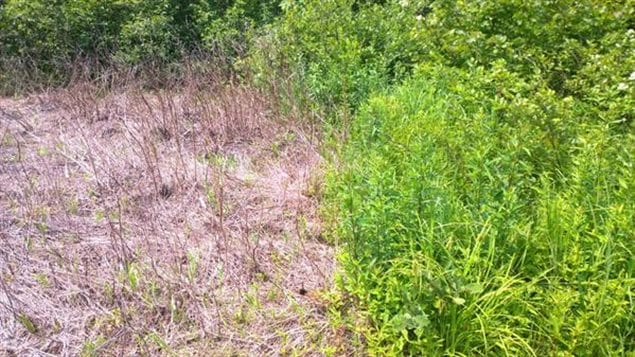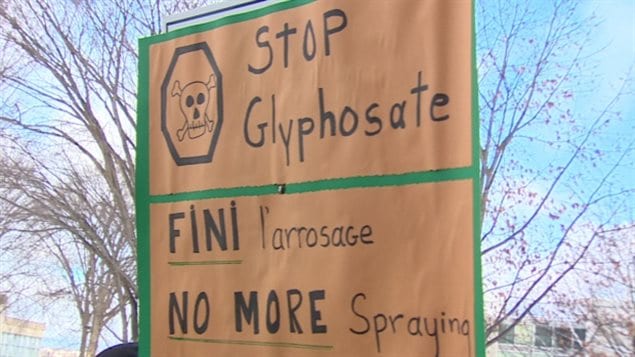Glyphosate is a chemical used in a number of products, notably “Roundup” by Monsanto. It’s one of the most widely used farming herbicides in the world and has been marketed since the 1970’s.
Glyphosates are also used in the forestry industry to clear land to make logging easier.
The controversy arises from concern the product may be cancer-causing in humans.
Many environmental groups in Canada and around the world are calling for an outright ban on the use of the product.

The dispute heated up this month after the European Food Safety Authority (EFSA) issued an opinion in November saying glyphosate is unlikely to cause cancer. EFSA is an advisory body to the European Union.
However, that opinion runs counter to the view from a World Health Organization (WHO) agency. In March the International Agency for Research on Cancer (IARC) issued a statement saying glyphosate is “probably carcinogenic to humans”.
Following the EFSA statement, almost 100 scientists from around the world signed a letter to the European Health Commissioner saying the EFSA opinion should be disregarded.
Quoted by Reuters it read in part, “”We urge you and the European Commission to disregard the flawed EFSA finding on glyphosate in your formulation of glyphosate health and environmental policy for Europe”. The letter also said EFSA’s opinion was not supported by evidence, and also seemed to hint the EFSA could be influenced by interest groups, saying the IARC position was open, transparent and its scientists “were not affiliated or financially supported in any way by the chemical manufacturing industry
The EFSA position could influence the EU renew the approval for glyphosate use.
Officials from EFSA and the IARC are set to meet to discuss their differing opinions in mid-February
additional information- sources
- Reuters News- 2016
- Guardian (UK)
- Pesticide Action Network
- Toronto Star- Health Canada position (Apr 2015)
http://www.thestar.com/news/gta/2015/04/14/health-canada-looks-to-re-label-weed-killer-roundup.html







For reasons beyond our control, and for an undetermined period of time, our comment section is now closed. However, our social networks remain open to your contributions.